Prodigious teenage wizard Cameron Myers tells Senior Correspondent Mike Osborne how he’s plotting to beat the middle-distance masters at the Paris Olympics.
It’s a big year for the new whizz-kid of Australian athletics who has two spellbinding goals – finish high school with flying colours and take on two world champions and the defending gold medallist in the Paris Olympic 1500m.
Cameron Myers seems to unleash magic every time he steps on the track yet remains a charming, mild-mannered 17-year-old who has cleverly calculated the tough trek ahead and is working on a master plan to reach sport’s holy grail.
The first trick needed by the world’s second youngest athlete to break the four-minute mile barrier (behind Norway’s reigning Olympic 1500m champion Jakob Ingebrigtsen) is to get selected for Paris.
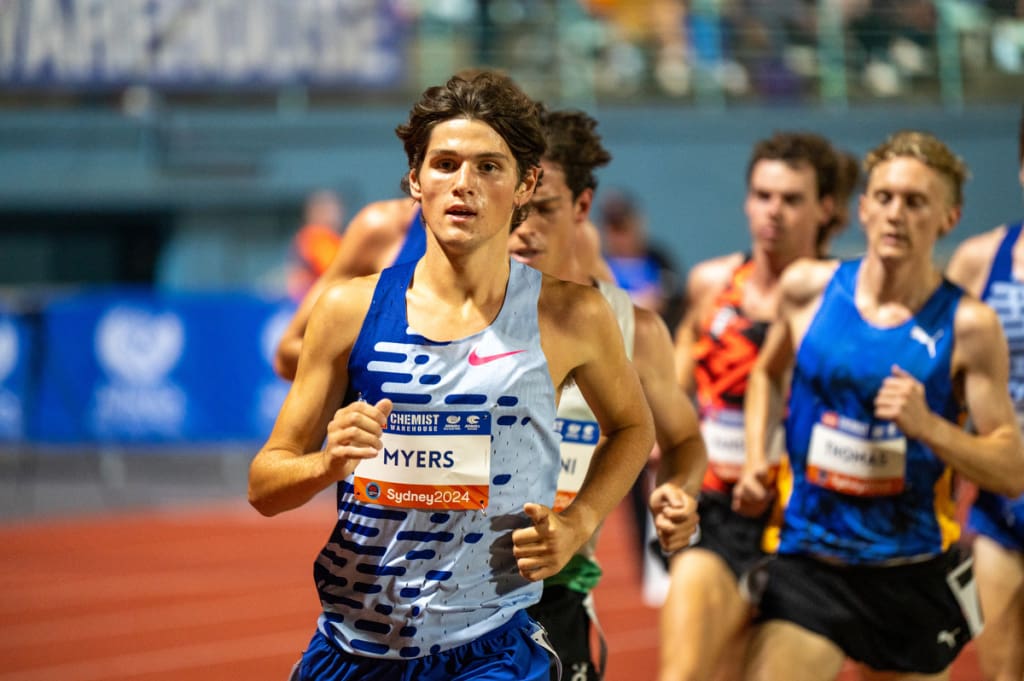
Myers has run two Olympic qualifying times but knows selection won’t be easy given Australia’s depth over the classic 1500m distance that includes Commonwealth champion Ollie Hoare, 27, and Olympic finalist Stewart McSweyn, 28.
“It’s stacked,” he said. “There’s five or six guys that could be contending.”
To cement a place in Paris the tall skinny teen needs to conjure a win in the 1500m at the national titles in Adelaide in April against a group of older, more experienced and faster athletes. At the moment Myers’ personal best time leaves him about five metres behind Hoare and McSweyn at their best. But racing is very different to time trials.
“I just look at it like I’ve got to be at my best,” he said. “If I’m at my best I’m going to be pretty hard to beat.”
Myers was talking after delivering another dose of alchemy to win the national 3000m title at the Sydney Track Classic, while also setting a national under-20 record of 7min46.38.
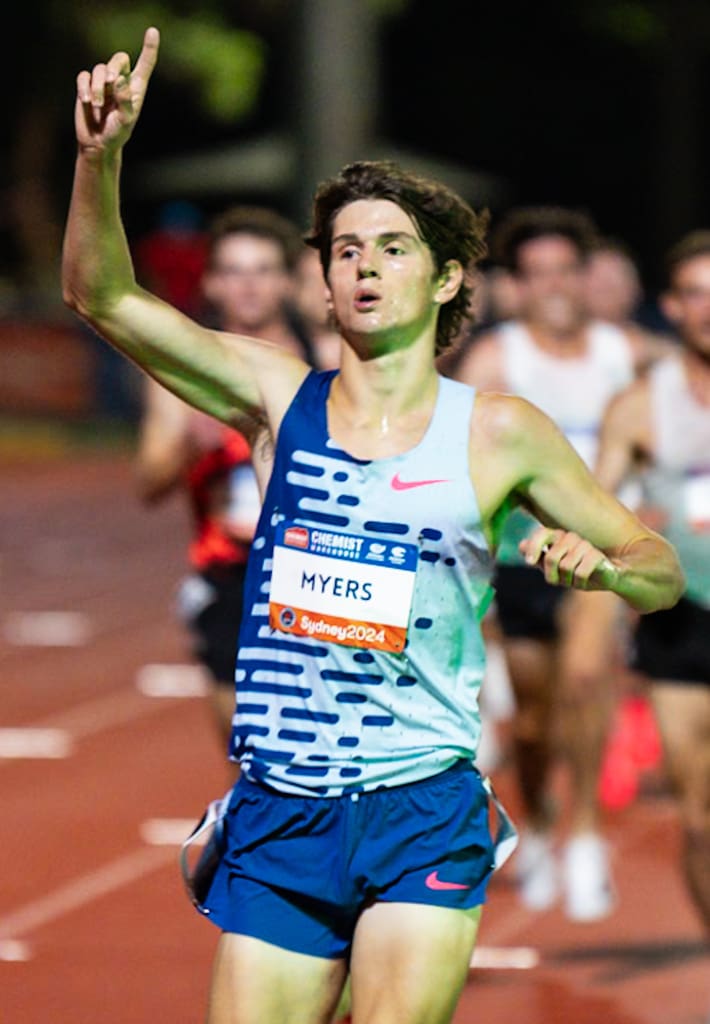
“This is just sort of a stepping stone and it is positive momentum,” he said of his first senior title. “So I am happy about that … but I would much rather get one at the (Olympic) trials (in Adelaide) in a couple of weeks.”
To win in Adelaide he’ll need to weave the same sorcery that helped him lower his 1500m personal best four times in five runs during one month in Europe last year.
That included his current best of 3min33.26, the fastest ever time by an under-18 athlete, set at the Diamond League meet in Poland in July 2023.
If Myers makes it to Paris he’ll be an 18-year-old apprentice standing in the imposing shadow of world record holder Ingebrigtsen, 23, as well as Scotland’s world champion duo of Josh Kerr, 26, (2023) and Jake Wightman, 29, (2022) and the mighty Kenyans.
To put that in perspective he’ll need to survive a heat and semi and then make up more than seven metres in a final against the giants of the sport.
Will he be intimidated? “I don’t think you can afford to be at this level,” he said.
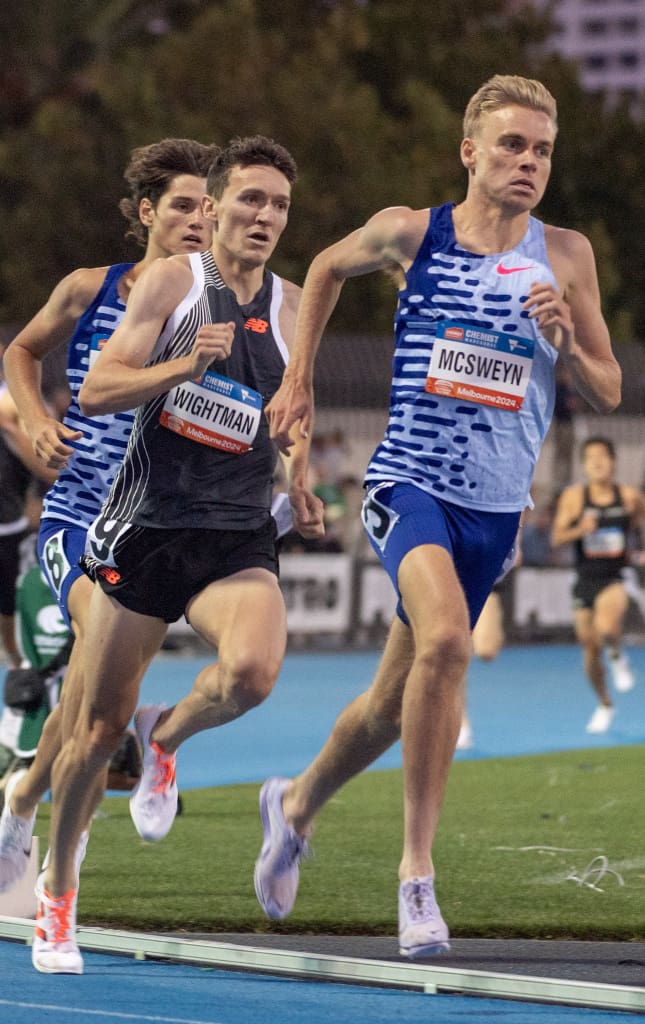
He already has Wightman’s scalp after facing him twice in February, albeit with Wightman being out of season and coming back from injury. Myers set the fastest 1500m time by an Australian on home soil (3min33.30) to beat him in Sydney, and finished less than half a second behind him in the John Landy Mile in Melbourne.
“We had a brief conversation after the race in Melbourne and he’s so inspiring as an athlete and is one of the best blokes going around,” Myers said of Wightman.
“Just looking at his career is inspiring because he lacked a little bit of strength in Tokyo (at the Olympics in 2021) and was able to work on it and get to the top where he needed to be in Oregon (at the 2022 World Championships).”
And then there’s Ingebrigtsen, the great Norwegian whose aggression on and off the track goes viral, especially the fireballs he shoots at Kerr, his 2023 Budapest world championship conqueror.
“It’s good for the sport, it’s not toxic, it’s all friendly and necessary for the sport,” Myers said of Ingebrigtsen’s showmanship.
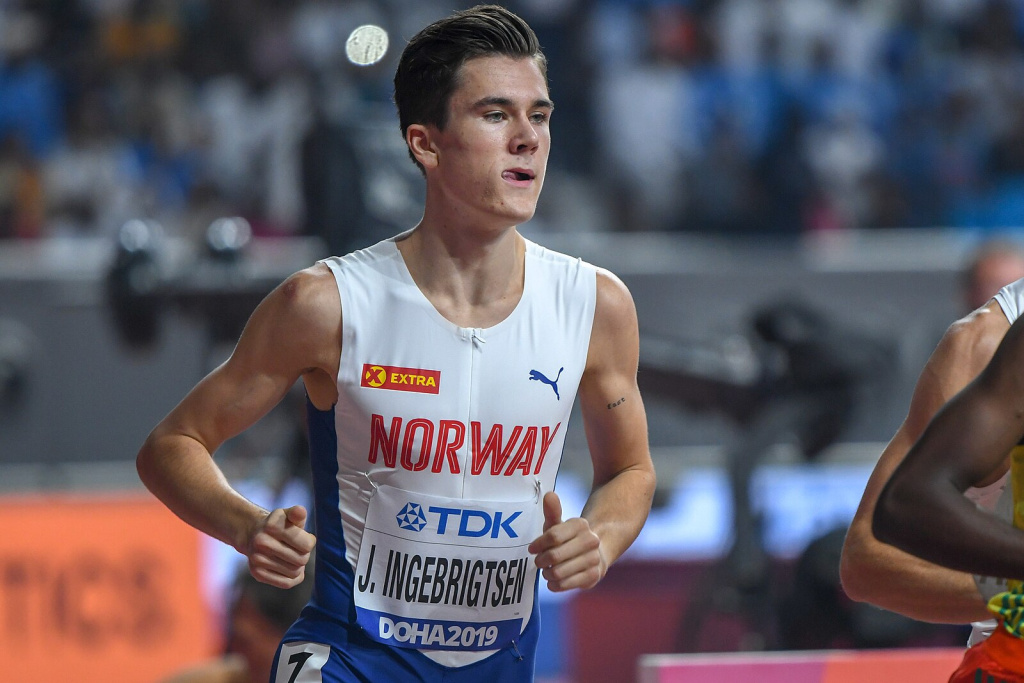
Myers is often compared to Ingebrigtsen because the Australian has broken the Norwegian’s mile, 1500m and 3000m age-group records.
“He’s the best in the sport in my opinion, I think he races really aggressively,” he said. “I don’t pay too much attention to what he was doing at my age because he’s a bit different in the type of runner he is. It’s definitely cool to make those comparisons, but I don’t think it really means much to me.”
More important to Myers is his steady improvement under the training regime of coach Dick Telford, the sports scientist who has coached a series of successful Australian distance runners.
“We are layering it year on year and being consistent in training and I think that’s the most important because I’m not having many setbacks and it’s giving me momentum,” he said.
Myers has come a long way from the Aranda Primary School kid who was so annoyed at finishing well back in a Little Athletics cross country race that he decided to get serious about running, and winning.
As well as training in Canberra, he also runs for the Bankstown Athletics Club in Sydney and feels comfortable on tracks around the globe.
After the Adelaide national championships and Olympic selection trials Telford has set Myers for races in LA and Oregon before heading to Europe to target races that will hopefully help him prepare for Paris.
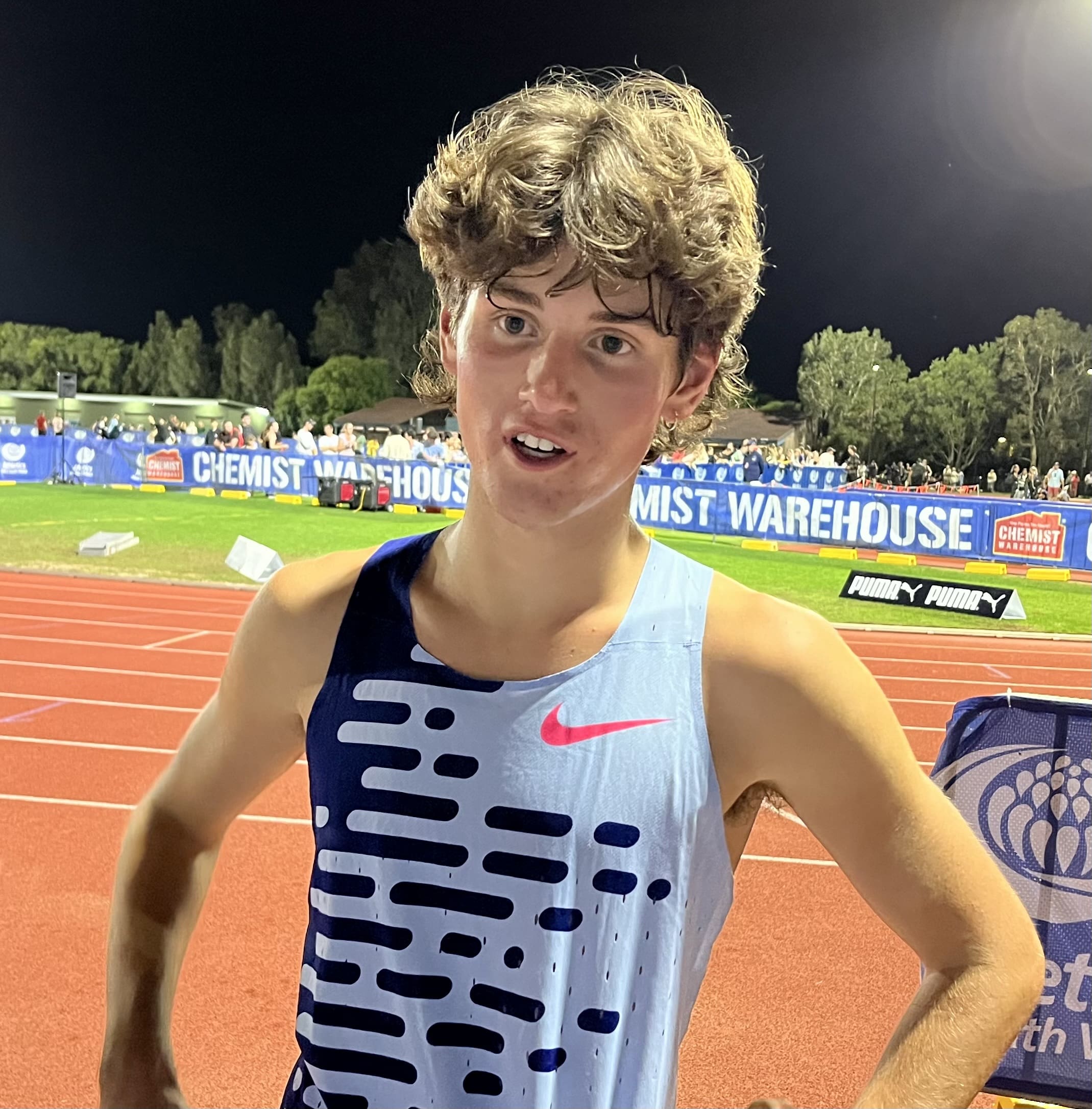
When he gazes into his crystal ball Myers can see the 2028 LA Olympics and a home Games in Brisbane 2032.
But first he must return to Canberra for his final spell of wizardry in 2024 – finishing his final school year and passing the ACT Scaling Test (AST) at Lake Ginninderra College.
“I’ll be back for my AST, it’s the HSC equivalent, and it really helps having Dick as my coach because he’s very knowledgeable,” Myers said.
“It’s going to be difficult but I will get through it as best I can and try to keep both the running and schoolwork just as good as each other.”
Michael Osborne has been a journalist for more than four decades including 35 years with the national news agency Australian Associated Press, rising from junior reporter to Editor.
He was AAP Editor for 11 years and served four years as Head of Sport and Racing. He was also posted to London and Beijing as AAP’s Bureau Chief and Foreign Correspondent.
He has worked at six Olympics and five Commonwealth Games, covered tennis grand slams, golf majors, international cricket, rugby world cups and numerous sporting world championships. He also co-ordinated and managed AAP’s teams and coverage at three Olympic Games in Athens 2004, Beijing 2008 and London 2012.



Discussion about this post